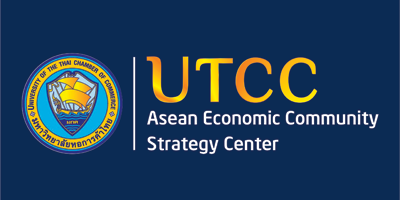Thailand: VAT rate kept at time-honoured 7% to help recovery
The cabinet yesterday approved the extension of the 7% value-added tax (VAT) rate for another year, saying a hike could derail the economic recovery.
According to Kobsak Phutrakul, assistant minister to the Prime Minister’s Office, the extension will cost the government an estimated 232.6 billion baht in lost revenue from tax collection until Sept 30 of next year.
The 7% tax rate, which has been extended several times, was set to expire on Sept 30 of this year.
The VAT was first introduced in 1992 at a rate of 10% but was slashed to 7% in late 1997 at the private sector’s request. The rate has been kept at 7% ever since.
Mr Kobsak said the Finance Ministry proposed that the 7% VAT be maintained for another year, as a hike could hit domestic consumption and private investment to the detriment of the country’s economic recovery.
The ministry reported that the Thai economy in 2017 is expected to continue growing, driven by improving exports, accelerated investment in infrastructure megaprojects, low oil prices, factory expansion, higher farm prices, rising household consumption and greater private investment.
The Finance Ministry’s think tank, the Fiscal Policy Office, predicts GDP growth of 3.6% this year, while the National Economic and Social Development Board (NESDB) in May forecast growth in a range of 3.3-3.8% this year, up from 3.2% growth in 2016 and 2.9% in 2015.
Porametee Vimolsiri, the NESDB’s secretary-general, said earlier that the Thai economy could manage up to 3.8% growth this year if exports continue to grow.
Mr Kobsak said the VAT extension will help ease pressure on consumers and stimulate household consumption, while allowing private businesses to more effectively execute their plans.
In a related development, the cabinet yesterday green-lighted a 1-billion-baht budget as seed money for the revolving fund to develop the palm and oil palm industry.
The government also pledged to set aside 10 million baht a year for the fund.
The fund will be used to strengthen the industry’s competitiveness in areas such as R&D, farm development and subsidies to entice farmers in inappropriate areas to grow other crops instead of oil palm.
“The fund will be prohibited from intervening in palm and oil palm prices,” Mr Kobsak said.
He said the cabinet also approved the establishment of a Board of Investment (BoI) office in Phitsanulok province to assist investors who invest in nine provinces in the lower North.
Up to now, Chiang Mai has been the sole BoI office serving the northern region.
Phitsanulok is becoming a significant province, being located at the intersection of the upper east-west and north-south economic corridors.
Source: http://www.bangkokpost.com/business/news/1306787/vat-rate-kept-at-time-honoured-7-to-help-recovery


 Thailand
Thailand




